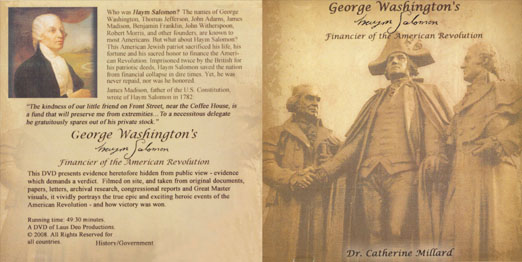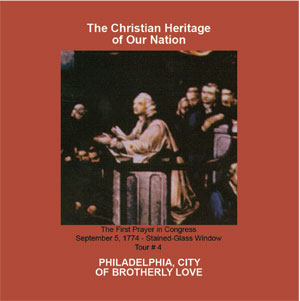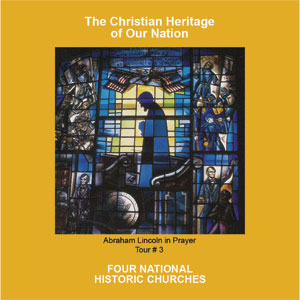It is an unhappiness into which the people of this age are fallen, that luxury is become fashionable and too generally preferred to frugality. Prodigality is now-a-days tricked up in the pompous titles of generosity and grandeur, whilst blest frugality is too often branded as the badge of an avaricious and sordid spirit.
This error has so far seduced us, as to prevail on many to renounce a frugal way of living, though taught by nature, and to indulge those excesses which serve only to abridge the number of our days.
Oh unhappy Italy! Dost thou not see, that gluttony and excess rob thee, every year, of more inhabitants than pestilence, war, and famine could have done? Thy true plagues, are thy numerous luxuries in which thy deluded citizens indulge themselves to an excess unworthy of the rational character, and utterly ruinous to their health. Put a stop to this fatal abuse, for God’s sake, for there is not, I am certain of it, a vice more abominable in the eyes of the Divine Majesty, nor any more destructive. How many have I seen cut off, in the flower of their days by this unhappy custom of high feeding! How many excellent friends has gluttony deprived me of, who, but for this accursed vice, might have been an ornament to the world, an honour to their country, and have afforded me as much joy in their lives, as I now feel concern at their deaths.
In order, therefore, to put a stop to so great an evil, I have undertaken this little book, and I attempt it the more readily, as many young gentlemen have requested it of me, moved thereto by seeing their fathers drop off in the flower of their youth, and me so sound and hearty. They begged me to let them know by what means I attained to such excellent health and spirits. I could not but think their curiosity very laudable, and was willing to gratify them, and at the same time do some service to my countrymen, by declaring, in the first place, what led me to renounce intemperance and lead a temperate life; secondly, by shewing the rules I observed; and thirdly, what unspeakable satisfaction and advantage I derived from it; whence it may be very clearly seen how easy a thing it is for a wise man to escape all the curses of intemperance, and secure to himself the inestimable felicities of vigorous health and cheerfulness.
The first thing that led me to embrace a temperate life, was, the many and sore evils which I suffered from the contrary course of living; my constitution was naturally weakly and delicate, which ought in reason to have made me more regular and prudent, but being like most young men, too fond of what is usually called good eating and drinking, I gave the rein to my appetites. In a little time I began to feel the ill effects of such intemperance; for I had scarce attained to my thirty-fifth year, before I was attacked with a complication of disorders, such as, headaches, a sick stomach, cholicky uneasinesses, the gout, rheumatic pains, lingering fevers, and continual thirst; and though I was then but in the middle of my days, my constitution seemed so entirely ruined that I could hardly hope for any other termination to my sufferings but death.
The best physicians in Italy employed all their skill in my behalf, but to no effect. At last they told me, very candidly, that there was but one thing that could afford me a single ray of hope, but one medicine that could give a radical cure, viz. the immediate adoption of a temperate and regular life. They added moreover, that, now, I had no time to lose, that I must immediately either choose a regimen or death, and that if I deferred their advice much longer, it would be too late for ever to do it. This was a home thrust. I could not bear the thoughts of dying so soon, and being convinced of their abilities and experience, I thought the wisest course I could take, would be to follow their advice, how disagreeable soever it might seem.
I then requested my physicians to tell me exactly after what manner I ought to govern myself? To this they replied, that I should always consider myself as an infirm person; eat nothing but what agreed with me, and that in small quantity. I then immediately entered on this new course of life, and, with so determined a resolution, that nothing has been since able to divert me from it. In a few days I perceived that this new way of living agreed very well with me; and in less than twelve months I had the unspeakable happiness to find that all my late alarming symptoms were vanished and that I was perfectly restored to health.
No sooner had I begun to taste the sweets of this new resurrection, but I made many very pleasing reflections on the great advantage of temperance, and thought within myself, “if this virtue has had so divine an efficacy, as to cure me of such grievous disorders, surely it will help my bad constitution and confirm my health.” I therefore applied myself diligently to discover what kinds of food were properest for me, and made choice of such meats and drinks only as agreed with my constitution, observing it as an inviolable law with myself, always to rise with an appetite to eat more if I pleased. In a word, I entirely renounced intemperance, and made a vow to continue the remainder of my life under the same regimen I had observed: A happy resolution this! The keeping of which entirely cured me of all my infirmities. I never before lived a year together, without falling once, at least, into some violent illness; but this never happened to me afterwards; on the contrary, I have always been healthy ever since I was temperate.
I must not forget here to mention a circumstance of considerable consequence. I have been telling of a great, and to me, a most happy change in my way of living. Now all changes, tho’ from the worst to the best habits, are, at first, disagreeable, I found it so; for having long accustomed myself to high feeding, I had contracted such a fondness for it, that though I was daily destroying myself, yet did it, at first, cost me some struggle to relinquish it. Nature, long used to hearty meals, expected them, and was quite dissatisfied with my moderate repasts. To divert my mind from these little dissatisfactions, I used immediately after dinner to betake myself to some innocent amusement or useful pursuit, such as, my devotions, my book, music, etc.
But to return. – Besides the two foregoing important rules about eating and drinking, that is, not to take of anything, but as much as my stomach could easily digest, and to use those things only which agreed with me. I have very carefully avoided all extremes…
Solomon was thoroughly sensible of the destructive tendencies of ungoverned passions, and has, in many places, cautioned us against them. He emphatically styles “envy a rottenness of the bones;” and says, that “wrath slayeth the angry man, and envy killeth the silly one;” and, “that the wicked shall not live out half their days.” For as violent gales of wind will soon wreck the strongest ships, so violent passions of hatred and anger will soon destroy the best constitutions.
However, I must confess to my shame, that I have not been at all times so much of a Christian and a philosopher, as entirely to avoid these disorders: but I have reaped the benefit of knowing by my own repeated experience, that these malignant passions have in general a far less pernicious effect on bodies that are rendered firm and vigorous by temperance, than on those that are corrupted and weakened by gluttony and excess…
But for the bare purpose of preserving ourselves in good health, there needs no better physic than a temperate and regular life. It is a specific and natural medicine, which preserves the man, how tender soever his constitution be, and prolongs his life…
But alas! Most men suffer themselves to be seduced by the charms of a voluptuous life. They have not courage enough to deny their appetites; and being over-persuaded by their inclinations so far, as to think they cannot give up the gratification of them, without abridging too much of their pleasures, they devise arguments to persuade themselves, that it is more eligible to live less years, than to be upon the restraint, and deprived of whatever may gratify their appetites. Alas! They know not the value of a healthy life,
In an age when a man may enjoy the full use of his reason, and turn all his wisdom and experience to his own, and the advantage of the world. To instance only in the sciences…
To say the truth would every one of us but pay a becoming attention to the quantity and quality of what he eats and drinks, and carefully observe the effects it has upon him, he would soon become his own physician; and indeed the very best he could possibly have, for people’s constitutions are as different as their faces; and it is impossible, in many very important instances, for the most skilful physicians to tell a man of observation, what would agree with his constitution so well as he knows himself. I am willing to allow that a physician may be sometimes necessary; and in cases of danger, the sooner the better. But for the bare purpose of preserving ourselves in good health, there needs no better physic than a temperate and regular life. It is a specific and natural medicine, which preserves the man…
Many have said to me, “How can you, when at a table covered with a dozen delicious dishes content yourself with one dish? It must surely be a great mortification to you, to see so many charming things before you, and yet scarcely taste them.” This question has frequently been put to me, and with an air of surprise. I confess it has often made me unhappy; for it proves that such persons got to such a pass, as to look on the gratification of their appetites as the highest happiness, not considering that the mind is properly the man, and that it is in the affections of a virtuous and pious mind, a man is to look for his truest and highest happiness…
To learn more, click here.
_______________________
Source: Library of Congress, Rare Book Collection, Washington, D.C.























